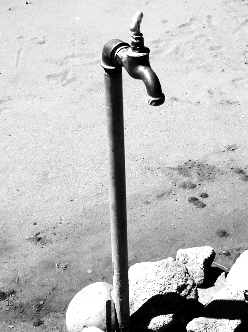NSW tightening restrictions
 Level 4 water restrictions will come into force for Dubbo in November.
Level 4 water restrictions will come into force for Dubbo in November.
Just weeks after the definition of level 4 was drawn up by the local council, Dubbo Regional Council mayor Ben Shields says extreme steps are now essential.
The region has seen record low rainfall and virtually non-existent inflows into its main water supply at Burrendong Dam.
“Level 4 is quite an extreme level to go to: no watering outside effectively, even some evaporative air conditioners cannot be used at night,” he told the ABC.
“I'm quite relieved that we are moving to these regulations… it's essential that we go down this [path].”
It will be the most extreme water restrictions ever imposed on Dubbo resident, after the council redesigned its drought management plan with for each level and new classifications up to level 6.
A $250,000 community education campaign will also be rolled out in coming days.
In the nearby town of Mudgee, water restrictions are at level 1, level 4 in Orange, but Gilgandra has no restrictions at all.
“The community is already using less water without council [intervention] and are being responsible about how they use water,” David Neeves, general manager of Gilgandra Shire Council, has told reporters.
“We're keeping a close eye on it and naturally as we come into the summer months if we haven't had rain we'll need to reconsider.”
NSW has no standard water restriction system, leaving local water utilities to come up with their own.
The state-owned corporation WaterNSW manages dams and river systems across the state, and recently provided a report to the NSW government on future rural infrastructure investment options.
It has been reported that one of the options is to divert water away from the coast and into drought-stricken inland regions – known as the 1938 Bradfield Scheme.
Experts have called for a state-wide system.
“I find that absolutely amazing that there isn't a standardised set of what the restrictions mean,” said Dr Ian Wright, a senior lecturer in Natural Science at Western Sydney University.
“Victoria has a state-wide plan, they have a state drought plan, they have definitions for everything so it’s quite clear.”
Upper Macquarie irrigators want a harmonious system too.
“I think that if we had a standardised system that would only help in communities understanding, businesses understanding, people's understanding of what their obligations are,” says Peter Schuster, chair of the Upper Macquarie Groundwater Group.
“We are heavily regulated as groundwater users, we adhere to a water sharing plan, we're here to work with council and others to get through this unprecedented drought.”
NSW Water Minister Melinda Pavey said it is not the right time to talk about a consistent system.
“Now is not the time to come in and take over, it's about working in collaboration,” she said.
“We are in uncharted territory because we are off the charts in terms of the lack of rain.”








 Print
Print